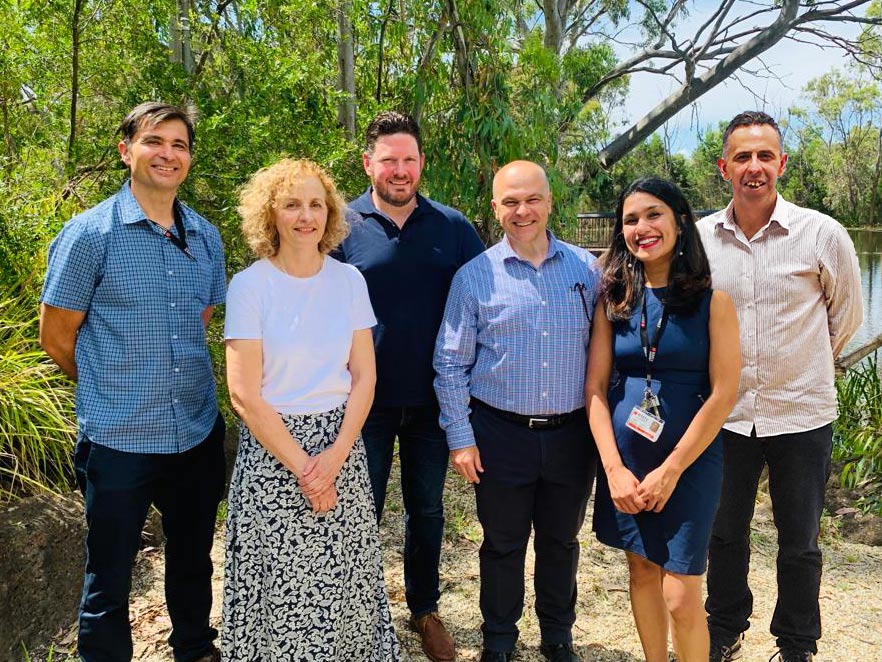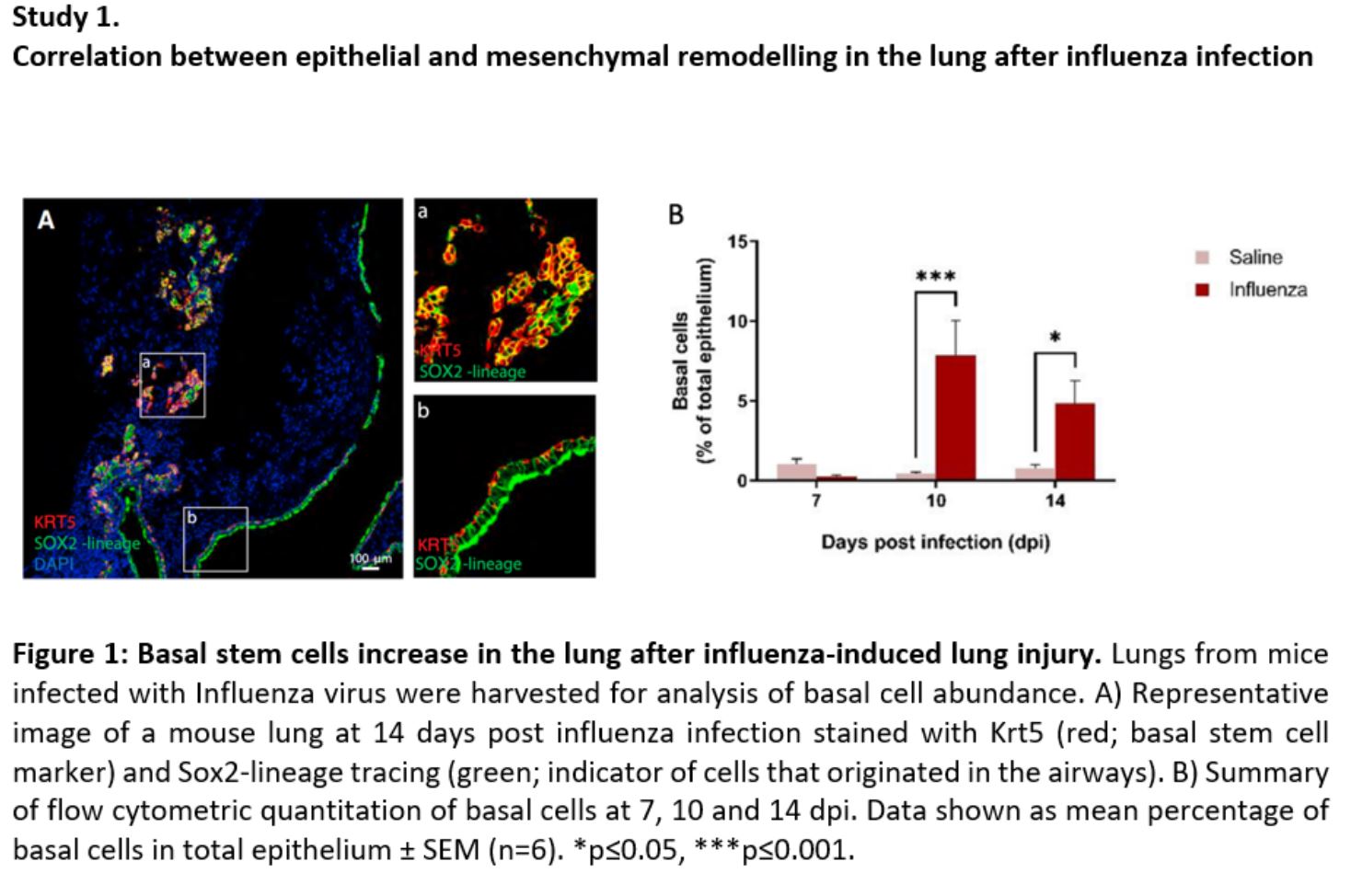
Research and teaching partnership delivers benefits for students and researchers alike
This story is part of RMIT's campaign recognising recipients of the 2023 Australian Awards for University Teaching. The Cardiorespiratory Biology team (Dr Elizabeth Verghese, Associate Professor Jonathan McQualter, Dr Narin Osman, Professor Steve Bosinovski, Professor Stavros Selemidis and Professor Ross Vlahos) received a citation for outstanding contributions to student learning.
Researchers and teachers in RMIT's School of Health and Biomedical Sciences have delivered an innovative approach to project-based assessment.
The research and teaching nexus acknowledges the close relationship and interdependence between these two elements of undergraduate education.Integrating research theory and activities in class work and assignments encourages active learning and invites students to think critically, highlighting how these skills are fundamental to future work beyond university.
As detailed in RMIT’s Education Plan to 2025, an RMIT education provides opportunities that support our learners to engage with cutting edge research and have access to our world class researchers through a well-considered approach to the research-teaching nexus.
In RMIT’s School of Health and Biomedical Sciences a project designed to integrate real-world research into the Cardiorespiratory Biology course has successfully tackled a common issue for students; that the link between research and its relevancy in careers post-university is often not recognised by students.
The project presented additional opportunities for improvement in the student experience. The course delivery had been didactic making it difficult for students to engage meaningfully and Course Experience Survey results indicated that it was time for a refresh.
Integration of research and teaching to stimulate curiosity
During 2020 – 2023, the team headed by Dr Elizabeth Verghese, Associate Dean Student Experience and Associate Professor Jonathan McQualter, delivered a reworked Cardiorespiratory Biology course that provided students with a real research experience to encourage critical analysis.
They developed an industry-based project, ‘Choose Your Own Adventure’ as a major assessment for the course. In groups, students were given a personalised data set from the teaching team's own research laboratories. This included internationally competitive and ground-breaking research funded by government (NHMRC, ARC grants) and industry partners such as CSL.
Each data set related to the theoretical content of the course so the students could feel connected with the real-life research setting. The assessment, worth 50%, was authentic as it mirrored the abstract and oral presentation of conference papers and the discussion element of a journal article.
The research data was unpublished and provided without context, so students and teachers alike had to work through the entire process of data analysis and interpretation.
“They're essentially going through the entire cycle of research, but with a data set that they've never seen before, about a topic they don't understand, and together they work backwards to create that story” said Dr Verghese.
Students worked in groups on their dataset and incorporated knowledge from online lectures and literature to come up with the best interpretation.
“Across oral presentations and written submissions students analysed how the data was generated, and what the results mean.”
Dr McQualter attributed the success of the project in large part to leveraging the expertise of the researchers behind the data to work closely with the students, which helped to legitimize the importance of research in their studies.
“We’re really lucky that we have a lot of research active academics that are teaching into the course, which helps with maintaining currency."
 The Cardiorespiratory Biology teaching and research team
The Cardiorespiratory Biology teaching and research team
Empathetic and effective guidance to support active learning
As the teacher was no longer delivering the material, a key element of the assessment lay in students driving their own investigation. Rather than give answers and expect the lecturer to tell them whether they were right or wrong, students were empowered to draw on their knowledge and integrate practices of self-directed learning and critical reflection to reach the end point of the assessment.
The team engaged students to this mode of learning by drawing on Paulo Freire’s theory of blurring the lines of student-teacher relationships. Dr Verghese explains the broader impact of this approach.
"We trained our teaching team not to play the traditional role of the teacher and spent a lot of time getting to know the students."
"Over time, the relationships formed gave us opportunity to encourage students in this. Each week they became more engaged and gradually transitioned into the role of teacher as we became the students listening to their interpretations."
A rewarding experience for students and researchers alike
For students, the space and support this approach generated during classtime, and as they progressed through their assessment, encouraged them to stretch their critical thinking, analysis and problem solving skills, as well as to build productive relationships with the researchers behind the data they were analaysing.
James Manoussakis studied Cardiorespiratory Biology in 2021 and said, "The experience helped provide me with a good baseline of skills to work from and build upon now in post-graduate studies."
Daniel Foran recognises the skills gained from the coure that he'll be able to draw on in industry, "During the course I developed strong analytical, team work, communication and scientific skills."
Professor Ross Vlahos, Associate Dean Biomedical Sciences and researcher, was engaged to the course to guide students as they evaluated his own research as part of the project.
As Professor Vlahos’ first teaching experience it was an invaluable opportunity to not only train the next generation of scientists, but also realise and experience first-hand the impact researchers and educators can have on people.
“I loved it because I found that it really engaged students... but also, selfishly, it was great for identifying third year students who might be interested in pursuing an Honours or HDR pathway.”
Professor Vlahos gained invaluable experience developing his skills influencing students' approach to critical thinking in research, as well as his ability to guide the students, facilitating growth and engagement throughout the project.
Referencing real world concepts and using props in class was a tactic that Professor Vlahos implemented to ‘engage [his] students to get across key concepts’. Showing his class a pair of stockings to illustrate a lung disease, emphysema, and imagining a night out on Chapel Street to identify the causes of allergic reactions were some of the tactics that Professor Vlahos encouraged his students participate in class and critically analyse the course work, whilst keeping it compelling and relevant.
An approach that delivered results
Data from Annual Course experience Surveys showed a transformed student experience, engagement and grades. The course shifted from being 'at risk' in 2017 with an average Good Teaching Score (GTS) of 3.85 and Overall Stability Index (OSI) 4.2, to leading the STEM College in 2021 and 2022, with an average GTS 4.77 and OSI 4.7.
Professor Vlahos cites the impact research and researcher involvement had on the course.
“The course was great, and it was the integration of the research, and the researchers... [into to the teaching] that made it an award-winning course”
 An example of data used in the 'Choose Your Own Adventure' industry project
An example of data used in the 'Choose Your Own Adventure' industry project
Words by: Eliza Cain
Related News


Acknowledgement of Country
RMIT University acknowledges the people of the Woi wurrung and Boon wurrung language groups of the eastern Kulin Nation on whose unceded lands we conduct the business of the University. RMIT University respectfully acknowledges their Ancestors and Elders, past and present. RMIT also acknowledges the Traditional Custodians and their Ancestors of the lands and waters across Australia where we conduct our business - Artwork 'Sentient' by Hollie Johnson, Gunaikurnai and Monero Ngarigo.
More information